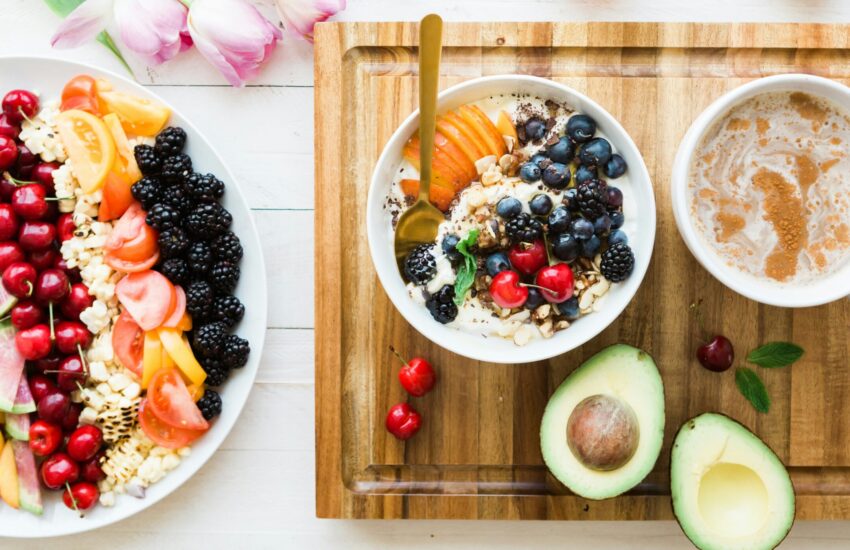Developing a healthy eating routine is crucial for maintaining overall health and well-being. A balanced diet provides essential nutrients that support bodily functions, energy levels, and overall vitality. In this comprehensive guide, we will explore various tips and strategies to help you establish a healthy eating routine that promotes optimal health. Mohit Tandon from Houston suggested Healthy Eating Routine Tips.
Understand the Basics of Nutrition:
Before diving into specific tips, it’s important to understand the basics of nutrition. Nutrients are essential substances found in food that provide energy, support growth, repair tissues, and regulate bodily functions. These include carbohydrates, proteins, fats, vitamins, minerals, and water.
Focus on Whole Foods:
Firstly, Base your diet around whole, minimally processed foods. These include fruits, vegetables, whole grains, lean proteins, and healthy fats. These foods are rich in nutrients and fiber, which are essential for optimal health.

Plan Your Meals:
Secondly, Planning your meals in advance can help you make healthier choices and avoid impulsive eating. Take some time each week to plan your meals and snacks, and create a shopping list accordingly. This can help save time and ensure that you have nutritious options readily available.
Eat Regularly:
Thirdly, Aim to eat regular meals and snacks throughout the day. This helps maintain stable blood sugar levels and prevent excessive hunger. Skipping meals or waiting too long between meals can lead to overeating and poor food choices later in the day.
Practice Mindful Eating:
Mindful eating involves paying attention to your food choices, eating slowly, and savoring each bite. Mohit Tandon from Houston says that Avoid distractions such as television or electronic devices while eating, and focus on the sensory experience of eating.
Stay Hydrated:
Drink plenty of water throughout the day to stay hydrated and support overall health. Water helps regulate body temperature, aids digestion, and flushes out toxins. Aim to drink at least 8-10 cups of water per day, or more if you’re physically active or in hot weather.
Portion Control:
Pay attention to portion sizes to avoid overeating. Use smaller plates and bowls to help control portion sizes. Be mindful of serving sizes recommended for different food groups.
Include a Variety of Foods:
Incorporate a variety of foods from all food groups into your diet to ensure that you’re getting a wide range of nutrients. Aim for a colorful plate filled with fruits, vegetables, whole grains, lean proteins, and healthy fats.
Balance Your Plate:
Build balanced meals that include a combination of carbohydrates, proteins, and fats. Fill half your plate with fruits and vegetables, one-quarter with lean proteins, and one-quarter with whole grains or starchy vegetables.
Choose Healthy Fats:
Include healthy fats in your diet from sources such as avocados, nuts, seeds, olive oil, and fatty fish like salmon and mackerel. These fats are essential for brain health, hormone production, and overall well-being.
Limit Added Sugars and Processed Foods:
Minimize your intake of added sugars, refined grains, and processed foods, which are often high in calories and low in nutrients. Instead, choose whole, minimally processed foods whenever possible.
Read Food Labels:
Learn to read food labels to make informed choices about the foods you consume. Pay attention to serving sizes, ingredient lists, and nutrient content, and aim for products with minimal added sugars, sodium, and unhealthy fats.
Practice Moderation:
Enjoy your favorite treats in moderation as part of a balanced diet. Restrictive eating patterns can lead to feelings of deprivation and may not be sustainable in the long term. Allow yourself to indulge occasionally while maintaining overall balance and moderation.
Cook at Home:
Cooking at home allows you to have more control over the ingredients and cooking methods used in your meals. Experiment with new recipes and cooking techniques to make healthy eating enjoyable and exciting.
Limit Processed Foods:
Reduce your intake of processed and packaged foods, which are often high in unhealthy fats, added sugars, and sodium. Instead, choose whole, minimally processed foods that are closer to their natural state.
Be Mindful of Emotional Eating:
Be mindful of emotional eating and the triggers that may lead to it, such as stress, boredom, or sadness. Find alternative ways to cope with emotions, such as practicing relaxation techniques, exercising, or seeking support from friends and family.
Listen to Your Body:
Pay attention to your body’s hunger and fullness cues to guide your eating patterns. Eat when you’re hungry and stop when you’re satisfied, rather than relying on external cues or strict diet rules.
Be Flexible:
Be flexible with your eating habits and allow room for spontaneity and enjoyment. It’s okay to deviate from your routine occasionally and indulge in special occasions or social events.
Seek Professional Guidance:
If you’re unsure about how to create a healthy eating routine or have specific dietary concerns, consider seeking guidance from a registered dietitian or nutritionist. They can provide personalized recommendations based on your individual needs and goals.
Stay Consistent:
Consistency is key when it comes to establishing a healthy eating routine. Stick to your plan as much as possible, but don’t beat yourself up over occasional slip-ups. Focus on progress rather than perfection and celebrate your achievements along the way.
Stay Informed:
Stay informed about nutrition and health-related topics by reading reputable sources, attending educational workshops, or consulting with professionals in the field.
In summary, establishing a healthy eating routine involves incorporating a variety of nutrient-dense foods, practicing portion control, staying hydrated, and being mindful of your eating habits. By adopting these tips and strategies, you can create a sustainable eating routine that supports your overall health and well-being for the long term. Remember to listen to your body, be flexible, and seek professional guidance when needed to optimize your nutrition and achieve your health goals.
